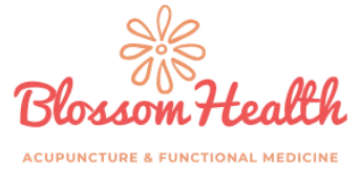Acupuncture works to maintain health and balance in the body’s systems, restore function and promote healing. It is a safe, effective and painless way to treat a wide variety of health conditions and concerns in a non-pharmaceutical manner with few to no side effects when practiced properly.
Acupuncture is a simple, elegant, and practical form of medicine because it works. Without side effects. It is its own, complete system, based on practice thousands of year ago. It is root cause medicine, meaning that it identifies the cause, and not just masks the symptoms as western medicine does.
Acupuncture can also be difficult to conceptualize in our culture. Many explanations about how it works can make it seem even more confusing, but it can be ”demystified” with biomedical explanations. One of the primary ways in which acupuncture works is via blood flow. The concept is simple: Everything the body needs to heal is carried in the blood. This includes oxygen, nutrients, hormones, immune and healing substances, analgesics (painkillers) and anti-inflammatories. There are hundreds of studies which show how acupuncture works via increased blood perfusion (blood flow).
In addition, acupuncture works via the nervous system by regulating and releasing neurotransmitters and endorphins, which reduce pain, begin the healing process, and contribute to an overall state of well being. Studies also show that it regulates an important hormone called cortisol., produced by the adrenal glands. A dysfunction of the delicate balance of hormones can affect the HPA (hypopituitary-adrenal axis), can contribute to annoying symptoms such as insomnia, premature aging and weight gain, infertility, as well as inflammation and disease in our modern culture.
Acupuncture is well studied, and for many conditions, can yield better results than conventional medicine. This is especially true for chronic conditions that require “detective work” and problem solving rather than treating symptoms with a pill (medications).
Acupuncture is about being proactive rather than reactive. We don’t wait until someone is already sick enough to require medication. If you don’t feel well, your body is trying to tell you something. It’s about prevention!
Traditional Chinese Medicine, (TCM) which my acupuncture approach is based on, is a complete system of medicine in and of itself. No western diagnosis is needed, since we use a whole different set of principles for diagnosing and treating your condition. These principles work, but we use a different language to solve the same problem. For example, let’s say a patient presents with insomnia, eczema, and idiopathic (cause unknown) headaches. A TCM practitioner will use information from the intake, history, and (tongue and pulse readings) to arrive at a possible root cause, which can vary from patient to patient, instead of prescribing a pill to manage the symptoms of EACH of these symptoms or diseases. Treating each symptom with a separate pill can get expensive, and doesn’t address the actual issue. (Keeping in mind that we do not, and never will, recommend ceasing medication prescribed by your doctor.)
As Acupuncturists, our approach is similar to Functional Medicine. We apply the same detective work and deductive reasoning. We don’t treat a static disease process, but regard health as a continuum consisting of dynamic layers, variables, and multiple contributors to our overall state of health.
A good Acupuncturist will also take into consideration the connection between the mind, body, and emotions, as well as an individual’s unique genetic constitution and surrounding environment. This is what the word HOLISTIC really means: to address all of these factors.
Acupuncturists are required to take all of the sciences as well as western medicine, pathophysiology, pharmacology, etc., in order to graduate from acupuncture school. We are trained to see all perspectives and know the strengths and weaknesses of each type of medicine. We will never hesitate to refer to a western doctor (or in some cases insist), if it’s in the best interest of the patient. In California, Acupuncturists are required to take an especially rigorous course of study, since we are considered “primary care”.
Acupuncture is also a pleasant experience. Many patients fall asleep during treatment. We use hair-thin filiform needles, as opposed to the hypodermic needles that many may have associated with negative experiences in the past. We also use non-needle techniques, such as cupping, gua sha, and moxa. We have so many tools in our toolbox!
We are fully prepared to treat anyone that walks through the door, and our goal is to get you on the path to healing via a thorough intake, diagnosis, treatment plan, and a complete “toolbox” to work with.
